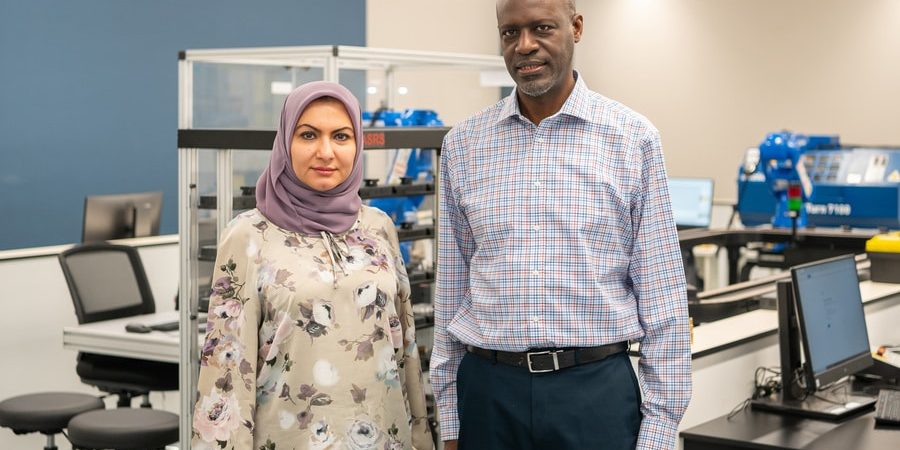
The research team at the American University of Sharjah has filed a provisional patent for a blockchain system to improve the carbon credits trading market. The patent was filed with the United States Patent and Trademark office.
The Carbon Credits Trade (CCT) market uses a marketplace to buy and sell credits that allow companies or other parties to emit a certain amount of carbon dioxide. Governments set limits on emissions, and companies that emit less than their limit can sell their excess credits to those that exceed their limit.
CCT encourages companies to reduce their carbon emissions and invest in cleaner technologies, ultimately helping to combat climate change.
The AUS team’s new blockchain system aims to address the inefficiencies and challenges associated with current CCT platforms by automating a number of the components, including registering participants, generating credits, tracking, and trading as well as measuring carbon emissions.
These improvements will help ensure transparency, immutability and credibility of operations and data records.
“This innovation streamlines the carbon credit trading process and offers significant benefits such as reducing operational costs, processing time and mitigating risks associated with double-spending and lack of transparency, which current CCT systems face,” said Dr. Malick Ndiaye, Professor in Industrial Engineering and research lead.
“It also aligns with the United Nations’ goal of combating climate change by enabling governments to leverage CCT effectively. It empowers countries and organisations to track and monitor greenhouse gas emissions, facilitating carbon credit trading while also aiding in the development of strategies to control and reduce emissions.”
He added that the new technology could contribute to a reduction in air pollution, resulting in a healthier environment for people with improved air quality, reducing the risk of respiratory illnesses and other health issues associated with air pollution.
The technology’s ability to reduce operational costs and processing time in carbon credit trading can create economic opportunities for businesses and investors, leading to job creation, increased investment in sustainable technologies and overall economic growth.
“Our technology offers transparent and access to carbon credit trading, which promotes social equity by ensuring that all stakeholders, including marginalised communities, have equal access to environmental resources and opportunities,” said Ndiaye.
However, by incentivising companies to reduce emissions through the trading of carbon credits, the AUS innovation offers a practical solution to mitigate the environmental impact of thermal power generation.
With the blockchain system automating and enhancing the efficiency of CCT processes, power generating companies operating thermal plants can more effectively manage and offset their carbon emissions.
By participating in the carbon credit market facilitated by the AUS innovation, these companies can demonstrate their commitment to reducing their carbon footprint while also accessing economic benefits through efficient trading and reduced operational costs.
Despite potential challenges such as regulatory hurdles, scalability, and security concerns, the AUS blockchain system offers a practical solution to mitigate the environmental impact of thermal power generation, positioning GCC companies as leaders in transitioning towards a sustainable energy landscape.
Four years in the making, the technology was exclusively developed within the College of Engineering (CEN) at AUS, with full support from full-time PhD student Dr. Alia Al Sadawi and an AUS Faculty Research Grant. Currently, a portion of the research is undergoing implementation in a prototyping phase at AUS to complete a case study on real time carbon emission measurement and monitoring. This new development phase is also supported by the Sharjah Entrepreneurship Centre.











